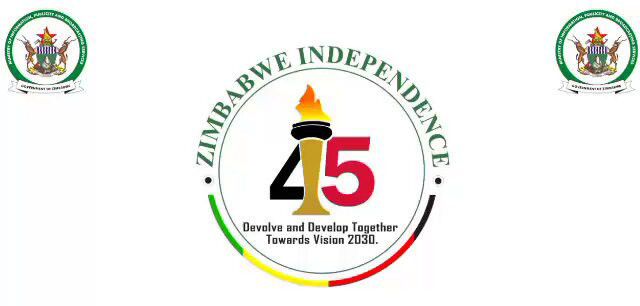
AS Zimbabwe marked 45 years of independence on April 18, 2025, the triumphant cries of “Uhuru!” (freedom) that echoed in 1980 resonate with a painful irony for many.
While political liberation from colonial rule was achieved, the subsequent decades have been defined by a relentless economic struggle: crushing debt, debilitating austerity, an increasingly burdensome tax regime, and a dominant informal sector.
These forces have conspired to deny the vast majority of citizens the tangible economic dividends promised by “uhuru”.
The initial post-independence period saw significant social investments, particularly in education and health.
However, beneath this surface of progress, economic vulnerabilities were beginning to fester.
The structural imbalances inherited from the colonial era were compounded by policy choices and external factors, leading to a long and tough economic decline that has defined much of Zimbabwe’s 45-year journey.
Cycle of debt and austerity
Zimbabwe’s economic narrative is deeply intertwined with its ever-growing national debt. From a relatively manageable position at independence, the public debt has ballooned, reaching an estimated 96,7% of GDP by July 2024, far exceeding the prudential threshold of 70%.
- Mavhunga puts DeMbare into Chibuku quarterfinals
- Bulls to charge into Zimbabwe gold stocks
- Ndiraya concerned as goals dry up
- Letters: How solar power is transforming African farms
Keep Reading
This unsustainable debt, currently standing at over US$21 billion, is a multi-faceted problem. External debt constitutes US$18,1 billion of this total, owed primarily to multilateral institutions (World Bank, African Development Bank — AfDB) and bilateral creditors such as China.
The accumulation of arrears exceeding US$3,4 billion to the World Bank and AfDB alone has choked off access to affordable international financing and concessional loans.
The accumulation of arrears on this debt has also severely curtailed Zimbabwe’s access to fresh, affordable international financing, pushing the country further into a precarious financial position.
To address this debt and stabilise the economy, successive governments have often resorted to austerity measures. These have typically involved cutting public expenditure, limiting subsidies, and attempting to curb inflation.
While theoretically aimed at restoring fiscal discipline and attracting investment, these measures often come with a heavy social cost. Reduced spending on public services such as healthcare and education, which were hallmarks of early independence gains, has seen a deterioration in quality and access for ordinary citizens.
This directly impacts the well-being and future prospects of the population, making “freedom from want” an abstract concept.
The pressure to service debt also means that a significant portion of the national budget is diverted away from critical development projects and social safety nets.
Austerity translates to dilapidated infrastructure, chronic shortages of medicines and teaching materials, and underpaid public sector workers. This status creates a vicious cycle, austerity stifles growth, making debt harder to repay, necessitating further cuts.
This creates a vicious cycle, limited investment stifles economic growth, which in turn makes debt repayment even harder, necessitating further austerity.
The taxing reality
As the government grapples with fiscal deficits and debt repayment, taxation has become an increasingly prominent tool for revenue generation.
While this is a necessary component of any functional state, the impact of Zimbabwe’s tax policies on a struggling economy and a largely informalised populace is a critical aspect of the “no uhuru” argument.
Zimbabwe employs a territorial tax system, meaning income sourced within the country is taxed. Corporate income tax and personal income tax are levied, along with a 3% Aids levy.
However, the challenge lies in the tax base and the burden on a population that is largely informal.
Estimates suggest that over 60% of economic activity in Zimbabwe occurs in the informal sector.
These businesses, often survivalist in nature, operate outside formal regulatory frameworks, making it difficult for the tax authority (Zimbabwe Revenue Authority, Zimra) to collect revenue effectively.
This often leads to a situation where the formal sector, already battling high operational costs and a challenging business environment, bears a disproportionately heavy tax burden.
Recent proposals for increased taxation, including efforts to broaden the tax base by automatically registering small and medium enterprises for tax purposes, and, including cross-border online transactions, reflect the government’s desperate need for revenue.
However, critics argue that aggressive taxation in a contracting formal economy, coupled with a dominant informal sector that largely evades taxes, can stifle formal business growth, discourage formalisation, and ultimately exacerbate economic hardship for those already struggling.
The recent emphasis on paying more taxes exclusively in the new local currency (ZiG), while aiming to stabilise the local unit, also presents challenges for businesses reliant on foreign currency for inputs and operations.
Shadow of sanctions
While internal policy choices have undoubtedly played a significant role, the impact of targeted sanctions imposed by some Western nations since the early 2000s cannot be overlooked in this economic analysis.
While designed to pressure specific individuals and entities, their broader economic repercussions have been profound.
Sanctions have been blamed for restricting access to international credit lines, hindering foreign direct investment, and increasing the cost of doing business.
This has further isolated Zimbabwe from global financial markets, impacting infrastructure development, trade, and overall economic growth.
In response to these pervasive economic challenges, the informal economy has become the primary lifeline for millions of Zimbabweans.
From street vendors to cross-border traders, this sector provides employment and sustains livelihoods for a vast majority. However, its very nature, untaxed, unregulated, and often operating on thin margins, means that it does not contribute meaningfully to the formal tax base or to national economic planning in a structured way.
This creates a paradox: the informal sector keeps people afloat but simultaneously limits the country's ability to generate the revenue needed for public services, debt repayment, and long-term development.
The promise of genuine economic self-determination and shared prosperity remains largely unfulfilled.
Achieving it demands more than rhetoric, it requires courageous, coherent, and sustained economic reforms for example having:
A comprehensive debt resolution plan.
A pro-growth fiscal policy that will see us shifting focus from austerity and over-taxation towards incentivising formal investment, job creation, and export diversification.
To create attractive incentives (simplified taxes, access to credit, property rights) rather than punitive measures to draw informal businesses into the fold.
A tax system overhaul. Broadening the base fairly, improving Zimra's efficiency in taxing high-net-worth individuals and complex transactions, and reducing the disproportionate burden on compliant formal businesses.
Continued diplomatic engagement to lift restrictive measures hindering economic recovery.
Unfinished business of uhuru
Forty-five years after independence, Zimbabwe’s economic landscape is a complex tapestry of persistent debt, austerity measures that pinch the pockets of ordinary citizens, and a tax system striving to capture revenue from a largely informalised economy.
The promise of “uhuru”, of economic self-determination and prosperity for all, remains an unfinished business.
Achieving it will require not just political will, but a comprehensive and sustained economic reform agenda that addresses the debt overhang, fosters a genuinely inclusive and formal economy, and creates a fair and equitable tax system that supports rather than stifles growth.
Only then can the true essence of freedom be felt in the daily lives of Zimbabweans.
- Millin is a social and economic justice ambassador. These weekly articles are coordinated by Lovemore Kadenge, an independent consultant, managing consultant of Zawale Consultants (Pvt) Limited, past president of the Zimbabwe Economics Society and past president of the Chartered Governance & Accountancy Institute in Zimbabwe. — [email protected] or mobile: +263 772 382 852.











